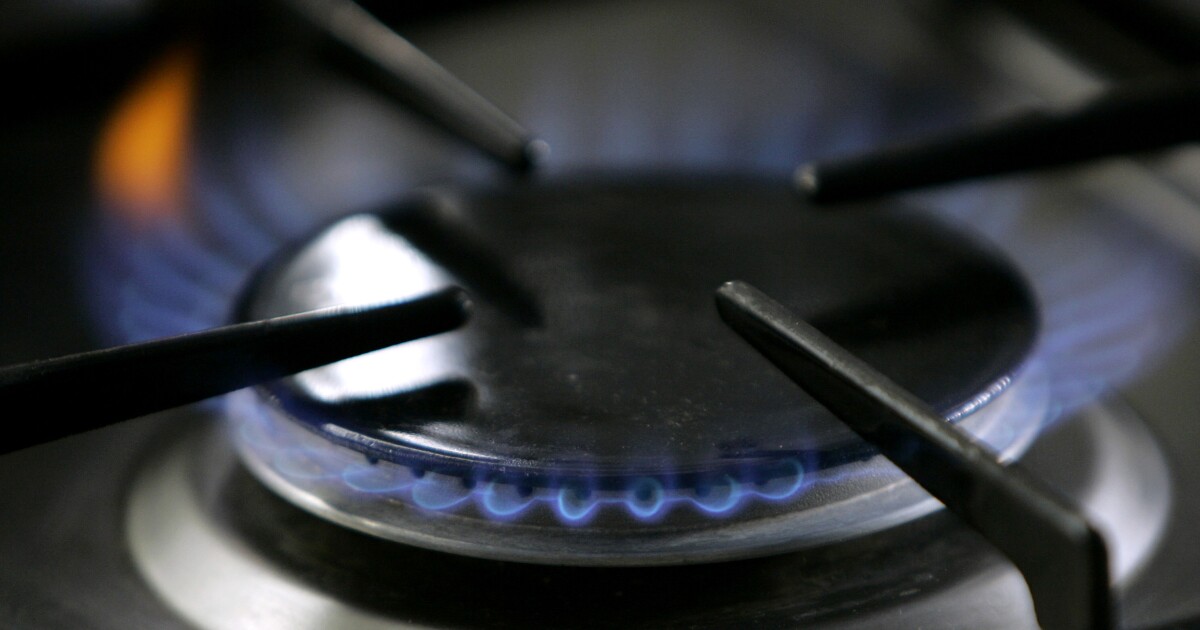

EXCLUSIVE — House Republicans introduced new legislation aimed at blocking the federal government from banning or regulating the use of gas stoves in U.S. households, according to copies of the bills shared first with the Washington Examiner.
Rep. Debbie Lesko (R-AZ) introduced HR 1640, the Save Our Gas Stoves Act, which would block the Department of Energy from finalizing, implementing, or enforcing its “Energy Policy and Conservation Program,” or the rulemaking introduced last month that would allow it to set new energy efficiency and conservation standards for consumer conventional cooking products, including gas stoves.
WHAT TO KNOW ABOUT THE STUDY BEHIND THE PUSH TO BAN GAS STOVES
DOE said in a memo last month that at least half of U.S. stove models would not be eligible for repurchase in stores if its proposed conservation rules were to come into force today.
The agency’s proposed rules represent “another example of out-of-touch bureaucrats trying to control Americans’ everyday lives,” Lesko said in a statement Monday.
Meanwhile, Rep. Kelly Armstrong (R-ND) introduced HR 1615, also known as the ‘Gas Stove Protection and Freedom Act, which would prohibit the Consumer Product Safety Commission from using federal funds to ban gas stoves.
That legislation would also bar the CPSC from enforcing any safety standard or rule that would “otherwise substantially increase the average price of gas stoves in the United States,” according to the text of the bill.
“Our bill makes it clear that Americans should decide if a gas stove is right for their families, not the federal government,” Armstrong said of his new bill.
House Energy and Commerce Chairwoman Cathy McMorris Rodgers (R-WA) applauded the pair of new House bills on Monday.
“Forcing people to switch to expensive alternatives will only further increase costs on hardworking families and disproportionately harm the most vulnerable communities,” she told the Washington Examiner in a statement.
“Natural gas is a safe, reliable and affordable energy source for millions of Americans,” Rodgers added.
The two new House bills come on the heels of bipartisan legislation introduced in the Senate last month. The Gas Stove Protection and Freedom Act, co-sponsored by Sens. Joe Manchin (D-WV) and Ted Cruz (R-TX), would prevent the CPSC from using federal funds to ban any new or existing gas stoves.
It is unclear whether any of the bills would clear the Democratic-led Senate.
Still, CPSC Commissioner Richard Trumka Jr. ignited a political firestorm earlier this year after he told Bloomberg in a January interview that the commission would weigh a ban on natural gas stoves, saying the popular household appliance was a “hidden hazard” and that “any option is on the table” to regulate them.
The resulting backlash from his remarks was so fierce both the White House and the chairman of the CPSC issued statements denying that a ban was in the works.
Even so, some form of governance or regulatory action on gas stoves could be coming down the pipe. The CPSC voted 3-1 earlier this month to issue a request for information, or RFI, seeking public input on the dangers of gas stoves and proposed solutions to those hazards.
Though the RFI by itself does not trigger any regulatory action or ban on gas stoves, as CPSC Chairman Alexander Hoehn-Saric stressed in a statement, it could be a first step for the agency toward implementing certain safety standards or other rules governing the use of the appliances.
CLICK HERE TO READ MORE FROM THE WASHINGTON EXAMINER
Gas stoves are used in roughly 40% of U.S. homes and are favored by many cooks. But they have been found to emit air pollutants such as nitrogen dioxide, carbon monoxide, and other particulate matter at levels deemed unsafe by the Environmental Protection Agency and the World Health Organization.
A federal ban on gas stoves would be unlikely, even as restrictions have become adopted widely at the state and local levels. As of this writing, nearly 100 cities and counties in the United States, mostly in blue areas, have already adopted policies restricting their use or to begin phasing them out in new construction, and at least 20 states have introduced or advanced similar efforts.





